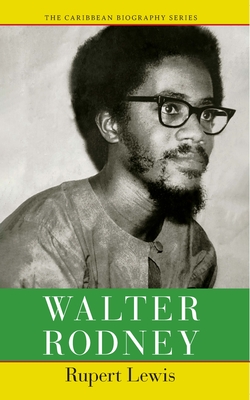Walter Rodney

Walter Rodney
Rodney dealt with whether he was in Tanzania, Jamaica or his native Guyana
(formerly British Guiana) was the character of the postcolonial state and its
relationship with the working people. It is his engagement with politics that
guided his research into African and Caribbean history. In the post-World War
II era the colonial powers had regrouped and were rebuilding Europe with the
strong financial and political support of the capitalist United States. The
Soviet Union, one of the victors over German fascism, was the other power on
the world scene. It was communist, and engaged in a Cold War with the United
States, the dominant global power. China under Mao Tse Tung was the other
communist state that had emerged after the 1949 revolution with a huge rural
population, much poverty and a low level of industrialization. Capitalist and
socialist powers vied for the hearts and minds of the peoples of Asia, Africa
and the Caribbean that were shaking off the shackles of colonialism. Latin
American countries which had achieved their political independence in the
nineteenth century were caught up in this nationalist surge as they battled
with neo-colonialism. They battled with Spain their colonial overlord, but also
with the United States which regarded Latin America and the Caribbean as its
backyard and intervened as it saw fit to pursue its strategic military,
political and economic goals. The Garvey and labor
movements of the 1920s and 1930s in the Caribbean as well as communist and
national liberation movements in the twentieth century helped to shape Walter
Rodney's political awareness. His parents' generation was actively involved in
the anti-colonial movement in British Guiana in the 1940s and 1950s, and in the
1960s and 1970s Rodney himself helped to shape the ideas around African and
Caribbean decolonization, Pan-Africanism, and Marxism.
PRP: 93.00 Lei
Acesta este Prețul Recomandat de Producător. Prețul de vânzare al produsului este afișat mai jos.
83.70Lei
83.70Lei
93.00 LeiLivrare in 2-4 saptamani
Descrierea produsului
Rodney dealt with whether he was in Tanzania, Jamaica or his native Guyana
(formerly British Guiana) was the character of the postcolonial state and its
relationship with the working people. It is his engagement with politics that
guided his research into African and Caribbean history. In the post-World War
II era the colonial powers had regrouped and were rebuilding Europe with the
strong financial and political support of the capitalist United States. The
Soviet Union, one of the victors over German fascism, was the other power on
the world scene. It was communist, and engaged in a Cold War with the United
States, the dominant global power. China under Mao Tse Tung was the other
communist state that had emerged after the 1949 revolution with a huge rural
population, much poverty and a low level of industrialization. Capitalist and
socialist powers vied for the hearts and minds of the peoples of Asia, Africa
and the Caribbean that were shaking off the shackles of colonialism. Latin
American countries which had achieved their political independence in the
nineteenth century were caught up in this nationalist surge as they battled
with neo-colonialism. They battled with Spain their colonial overlord, but also
with the United States which regarded Latin America and the Caribbean as its
backyard and intervened as it saw fit to pursue its strategic military,
political and economic goals. The Garvey and labor
movements of the 1920s and 1930s in the Caribbean as well as communist and
national liberation movements in the twentieth century helped to shape Walter
Rodney's political awareness. His parents' generation was actively involved in
the anti-colonial movement in British Guiana in the 1940s and 1950s, and in the
1960s and 1970s Rodney himself helped to shape the ideas around African and
Caribbean decolonization, Pan-Africanism, and Marxism.
Detaliile produsului









